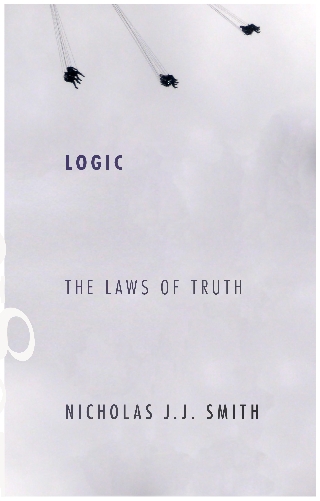Logic: The Laws of Truth
Nicholas J.J. Smith
Princeton University Press
 It was Arthur Schopenhauer who claimed that logic, should be capable of being deduced from self-evident premises. The focus of Logic: The Laws of Truth is not such on the necessity of evidential substantiation but on Socratic and Aristotelian logic, which is a pity as I perceive logic to be based on verifiable evidence rather than because authority figures have told you so, or because it is widely held to be true which is a formula that for disappointment.
It was Arthur Schopenhauer who claimed that logic, should be capable of being deduced from self-evident premises. The focus of Logic: The Laws of Truth is not such on the necessity of evidential substantiation but on Socratic and Aristotelian logic, which is a pity as I perceive logic to be based on verifiable evidence rather than because authority figures have told you so, or because it is widely held to be true which is a formula that for disappointment.
What the tome provide does provide is a well-founded, clear, precise and comprehensive introduction into the underlying principles of first-order logic, truth preservation, validity and soundness, which are backed by exercises, and explanations.
Despite the complexity of the sujet, the vocabulary used is consistently informational and the use of trees and tables aid the understanding of semantic content.
For the uninitiated, Logic: The Laws of Truth is a great resource for anyone remotely interested in philosophy and a great addition for the ones who are already familiar with other books on the subject, e.g. Sider's Logic for Philosophy, which goes a bit further and covers many topics not covered by Smith.
A more than viable foundation for what is the varied and often very subjective theology of truth.